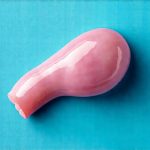The intricate relationship between our mind, gut, and bladder is often overlooked, yet profoundly impacts overall well-being. Many chronic conditions – from frequent urination and urgency to digestive discomfort and anxiety – can stem from a disconnect within this axis. This isn’t about isolated systems functioning independently; it’s about recognizing the constant communication happening between them. When one system falters, the others feel the ripple effect. Historically, healthcare has largely treated these symptoms in isolation, but a growing understanding of the mind-gut-bladder connection is shifting that paradigm and offering more holistic approaches to restoring balance.
This article delves into a powerful, yet surprisingly accessible method for improving this interconnected health: food timing. It’s not just what we eat, but when we eat that can significantly influence our mental state, digestive function, and bladder control. We’ll explore how strategic meal scheduling can help “reset” this flow, reducing symptoms and promoting a greater sense of calm and bodily harmony. This isn’t about restrictive dieting; it’s about working with your body’s natural rhythms to optimize its functionality. It’s about acknowledging that our digestive system, nervous system, and urinary tract are all interconnected parts of a larger, self-regulating ecosystem.
The Mind-Gut-Bladder Axis: Understanding the Connection
The mind-gut-bladder axis is built on bidirectional communication pathways. This means information flows in both directions – from the brain to the gut and bladder, and from the gut and bladder back to the brain. The vagus nerve plays a central role here, acting as a superhighway for signals between these systems. Stress, anxiety, or even simply a busy mental state can directly impact digestion and bladder function, leading to symptoms like irritable bowel syndrome (IBS), overactive bladder (OAB), or urgency. Conversely, gut imbalances – like dysbiosis (an imbalance of gut bacteria) – can influence brain chemistry and mood, contributing to conditions like anxiety and depression.
The bladder isn’t simply a storage tank for urine; it’s an active participant in this communication network. Signals from the bladder constantly relay information about fullness and urgency to the brain. However, these signals can be misinterpreted or amplified by stress and anxiety, leading to perceived urgency even when the bladder isn’t truly full. This creates a vicious cycle: stress leads to bladder symptoms, which then increase stress levels further. A healthy gut microbiome also plays an important role in modulating inflammation, which is often implicated in bladder conditions. Inflammation can sensitize bladder nerves, making them more reactive and contributing to urgency and frequency.
Food timing influences this entire system because digestion is a major physiological process that demands energy and focus from the nervous system. When we eat at irregular times or consume foods that are difficult to digest, it puts a strain on these systems, disrupting the delicate balance of communication. Optimizing food timing can therefore reduce stress on the axis, promoting calmer digestion and more regulated bladder function. For those looking for additional ways to support their well-being, consider incorporating focused breathing exercises into your daily routine.
Food Timing Strategies for Resetting Flow
The goal of food timing isn’t about strict rules; it’s about establishing a rhythm that supports your body’s natural processes. A key principle is time-restricted eating – confining your meals to a specific window each day. This allows the digestive system time to rest and repair, improving gut health and reducing inflammation. A common starting point is a 12-hour eating window, meaning you consume all your meals within that timeframe. Experimenting with different windows (e.g., 10 hours or 14 hours) can help you find what works best for your body. Consistency is key; sticking to a regular schedule, even on weekends, helps regulate the body’s internal clock and optimize digestive function.
Beyond time-restricted eating, consider these additional strategies: – Avoid large meals close to bedtime. Digestion requires energy, which can interfere with sleep quality and exacerbate bladder symptoms. – Prioritize breakfast within an hour of waking up. This “breaks the fast” and kickstarts metabolism for the day. – Space meals evenly throughout your eating window. Avoid prolonged periods without food, as this can lead to blood sugar fluctuations and increased stress on the body. – Focus on easily digestible foods. Minimizing processed foods, sugars, and excessive fiber (for some individuals) can reduce digestive burden and improve gut health.
A consistent eating schedule sends a clear signal to the nervous system, promoting a sense of stability and reducing anxiety. This, in turn, can help calm the bladder and lessen the perception of urgency. Remember that food timing is one piece of the puzzle; it’s most effective when combined with other healthy habits like stress management techniques (meditation, yoga) and adequate hydration. To further enhance your routine, explore gentle stretching exercises to support overall pelvic health.
Optimizing Breakfast for Gut-Bladder Harmony
Breakfast often sets the tone for the entire day, both physically and mentally. A nutrient-dense breakfast provides sustained energy, stabilizes blood sugar levels, and supports a healthy gut microbiome – all crucial factors in mind-gut-bladder flow. Avoid sugary cereals, pastries, or processed foods that cause rapid spikes and crashes in blood sugar. Instead, focus on incorporating protein, healthy fats, and fiber.
Consider these breakfast options: – Oatmeal with berries and nuts (provides fiber and antioxidants). – Greek yogurt with fruit and a sprinkle of seeds (protein and probiotics). – Eggs with avocado toast (healthy fats and protein). – A smoothie with protein powder, spinach, and berries (easy to digest and nutrient-rich).
The key is to choose foods that are gentle on the digestive system and provide sustained energy. Eating breakfast within an hour of waking up also helps synchronize your circadian rhythm, promoting better sleep quality and reducing stress levels. This can have a direct impact on bladder function, as adequate sleep and reduced stress are essential for regulating urgency and frequency. You might find it helpful to review optimal meal patterns, especially if you’re experiencing age-related changes.
The Impact of Meal Frequency & Timing on Urgency
Irregular meal times can disrupt the vagus nerve’s signaling, leading to increased sensitivity in the bladder. When we skip meals or eat at unpredictable intervals, our bodies enter a state of perceived scarcity, triggering the release of cortisol (the stress hormone). Cortisol can tighten the pelvic floor muscles, increasing pressure on the bladder and exacerbating urgency symptoms. Consistent meal timing helps regulate cortisol levels, promoting relaxation and reducing bladder sensitivity.
Furthermore, the type of food we eat influences how quickly it digests. Foods that are high in fiber or fat take longer to digest, providing a more sustained release of energy and preventing blood sugar spikes. This is particularly important for individuals with overactive bladder, as rapid fluctuations in blood sugar can worsen symptoms. Aiming for smaller, more frequent meals throughout the day can help maintain stable blood sugar levels and reduce stress on the digestive system. To support this, consider exploring simplified meal plans designed with bladder health in mind.
Hydration & Food Timing: A Synergistic Approach
Hydration is obviously crucial for bladder health, but when we drink fluids matters just as much as how much we drink. Drinking large amounts of fluid at once can overwhelm the bladder and lead to increased urgency. Instead, sip water consistently throughout the day, rather than gulping down a large glass in one sitting.
Timing your hydration around meals can also be beneficial. Drinking water with or shortly after a meal helps with digestion and prevents constipation, which can put pressure on the bladder. Avoid drinking excessive amounts of fluid before bedtime, as this can increase nighttime urination. Pay attention to your body’s signals and adjust your fluid intake accordingly. A balanced approach to hydration, combined with strategic food timing, is essential for restoring harmony within the mind-gut-bladder axis. Remember that mindful hydration goes hand in hand with thoughtful meal design to optimize bladder function.
This information is intended for general knowledge and informational purposes only, and does not constitute medical advice. It is essential to consult with a qualified healthcare professional for any health concerns or before making any decisions related to your health or treatment.





















